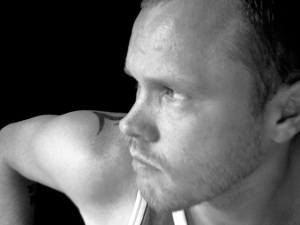Principal Photography.
So your first day of filming has arrived, good for you. In the pre production phase you should have set up a call sheet, not sure I mentioned that, sorry, but you should have, basically it tells everyone on the film, cast and crew, when and where to be. Cast usually get a later call unless they have special make up to apply. You the boss should be the first one on set and the last on off set, set the example so know one can complain about working long hours, so long as you don’t complain.
Talk to your crew and tell them what your going to be doing today, this is of course something you have already done in Pre, but its always nice to make sure everyone is on the same page, get set up and block out the shots, thats means setting down makers so the actors know when to stop moving, if there are moving, this also helps the focus puller, if you have one, ideally you want to be ready to go when the actor arrive. You don’t want them to have to wait around for to long, the cliched “Hurry up and wait” is something you should at least try to avoid, call your actors when your ready for them this includes any extras.
Now we look at your shot list, something you should have done in pre, figuring out what ‘coverage’ you want. Coverage being the shots you want to use. For example, I’d start with a master shot, everything or everyone in shot playing out the seen, you could have radio mic’s on the actors but I’d just stick to a decent shotgun mic as any dialogue will better once you move in for the closer shots. Get the master, then move in for any mid shots, if someone is speaking or reacting try to shoot something. Its also good to know how your going to edit the scenes together, if you wrote the script you might have some idea how you want this to stitch together, meaning you just shoot what you need, making things move quicker, but this is best for seasoned experienced directors. Then after the mis shots, usually form the naval to just about the head, move in for a close ups and extreme close up if the scene demands them, they do show emphasis on dialogues. Also particular angle might denote certain emotions. In one script I wanted a man to feel alone so I thought of moving the camera backwards through a door way, by the end of the shot the man is framed within the door frame, reducing this space down to almost nothing and filling the rest of the frame with a wall. Again this is all stuff you should have thought of before filming started, but thats not to say you want come up with something else on set, or someone else for that matter. If someone suggests a shot don’t just dismiss it because that someone isn’t experienced or a lot younger then you, visualize the shot and see if it’ll work. You never know, it might work better.
Get all the coverage you can in the time you have, this is why indie’s like free hand shooting, less set up per shot and more set ups in your day. But don’t rush it, make sure you get the shots you need, nothing worse then finding out because you rushed a shot it doesn’t work and you have to reshoot it, wasted time is bad for your own morale. As for takes, I’d tend to get at least 3, even if the first one was great. But don’t stop until you get a great take, good is ok, great is better.
Take each day at a time, but you will need to know what is coming and if you’ll need any special equipment for it and if it’ll be there on time, make the calls don’t wait until your setting on your ass waiting for it. You have to stay on top of everything, this is way you need that producer and you need them earlier so your on the same page from start to finish.
Principal Photography will pretty much run the same each day until your finish, if its a low budget film or a short and not very complex. Just wake up each day and get to set weather it be a location or studio, get there shot what you need, log and capture the days footage check your dailies make notes on pick ups or reshoots if any. If you have time edit a little so you have some idea of how if fits with everything else from that scene that you’ve filmed.
Remember that you are going to go over budget, if you have one and you will run long. When calculating how long it’ll take to shoot, you might want to account for this by added, extra time, how much depends on what your shooting, but you need it, you’ll most likely run through that extra time as well, just expect this and get on with filming what you need. A good idea would be if you have a scene that isn’t important, but for whatever reason you want to shoot it, put it at the end of the schedule and if you have to cut it, cut it. This again is where rewrites help out again, any dialogue that might be needed can go somewhere else. Plan for this.
Once you done, have a party.
This isn’t that in-depth, mostly because at my level it’ll just be the same thing over and over until you’ve filmed everything.


No comments:
Post a Comment